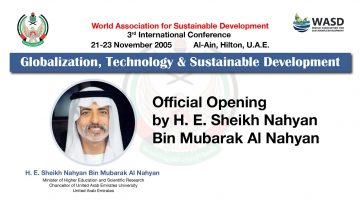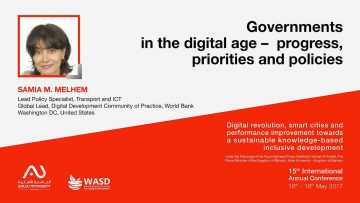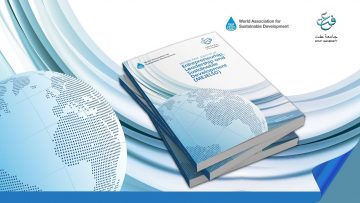(43) Emerging innovation systems (EIS): a new conceptual framework for analysing GCC and Maghreb countries policies, Prof. Abdelkader Djeflat
Prof. Abdelkader Djeflat
The Maghtech Network
CLERSÉ Laboratory
University of Lille,
France
DOI: 10.47556/J.IJIKMMENA.4.2.2015.1
 Purpose: This paper examines some of the difficulties met by GCC and Maghreb countries to innovate and impulse a sustainable growth through the lenses of the Emergence paradigm. It looks more precisely at the state of innovation systems and how they work in this crucial stage of emergency.
Purpose: This paper examines some of the difficulties met by GCC and Maghreb countries to innovate and impulse a sustainable growth through the lenses of the Emergence paradigm. It looks more precisely at the state of innovation systems and how they work in this crucial stage of emergency.
Design/methodology/approach: Both in-depth analysis of the existing literature and data collection. The study uses data from fieldwork conducted in both GCC and Maghreb countries involving several institutions (enterprises, training centres, ministries, research centres and industrial technical centres) together with secondary data mostly from international organisations.
Findings: Results indicate that both GCC and Maghreb Countries have not been using the right conceptual framework which is appropriate for their specific situation but rather an approach which is more indicated for emerging economies such as the Brazil, Russia, India, China and South Africa (BRICS) whose main objective is to catch up advanced economies. Our study shows in the case of GCC and Maghreb Countries, most key players and stakeholders of the innovation process are either partially included or totally excluded from the innovation sphere. Two major conclusions can be drawn: the first one is the need to construct an innovation system which brings back all the key players in the innovation sphere. The second one is to build an innovation system more appropriate to the Emergence stage, which could exercise a relatively strong push for an effective demand for R&D products and services to emerging and which we call here ‘Emerging Innovation System’ (EIS).
Originality/value: The originality of this work rests on the analytical framework used. While most work is done on these issues concentrated on input]output analysis examining mostly deficiencies in investment in R&D and registered patents, our approach gives a new interpretation through the Emergence paradigm. The EIS approach developed in earlier work (Djefl at, 2008, 2009) proved very useful to highlight unknown aspects of the difficult situation suffered by both GCC and Maghreb countries.
Keywords: Emerging Innovation Systems, EIS, Innovation System, Innovation Emergence, Catch Up, Developed Countries, Maghreb, GCC Countries
Reference to this paper should be made as follows: Djefl at, A. (2015) ‘Emerging Innovation Systems (EIS): A New Conceptual Framework for Analysing GCC and Maghreb Countries Policies’, Int. J. Innovation and Knowledge Management in the Middle East and North Africa, Vol. 4, No. 2, pp.75-85.














































